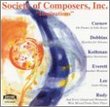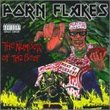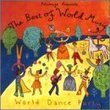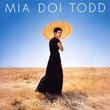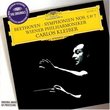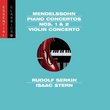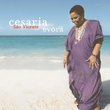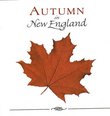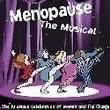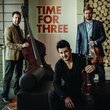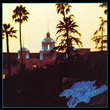| All Artists: Christoph Eschenbach, Gidon Kremer, Enno Senft, Chamber Orchestra of Europe, Philharmonia Orchestra Title: Alfred Schnittke: Complete Violin Concertos (1-4) - Gidon Kremer / Christoph Eschenbach Members Wishing: 2 Total Copies: 0 Label: Elektra / Wea Release Date: 10/24/2000 Genre: Classical Styles: Forms & Genres, Concertos, Instruments, Strings, Symphonies Number of Discs: 2 SwapaCD Credits: 2 UPC: 639842686624 |
Search - Christoph Eschenbach, Gidon Kremer, Enno Senft :: Alfred Schnittke: Complete Violin Concertos (1-4) - Gidon Kremer / Christoph Eschenbach
 | Christoph Eschenbach, Gidon Kremer, Enno Senft Alfred Schnittke: Complete Violin Concertos (1-4) - Gidon Kremer / Christoph Eschenbach Genre: Classical
It's good to have all four of Schnittke's violin concertos in one slimline two-disc set in definitive performances by Gidon Kremer, a passionate advocate for his friend's music. Concerto No. 1 is a student work revised in ... more » |
CD DetailsSynopsis
Amazon.com It's good to have all four of Schnittke's violin concertos in one slimline two-disc set in definitive performances by Gidon Kremer, a passionate advocate for his friend's music. Concerto No. 1 is a student work revised in 1963 that is still worth hearing. Concerto No. 2 is a knotty work with a subtext based on the life of Jesus. The Third Concerto is scored for a wind-heavy chamber orchestra and ranges across a musical landscape that includes Mahler, Schubert, Russian Orthodox chant, Berg, and Hindemith, yet remains a fascinating personal statement. The magnificent Fourth is the prize of the set, one of the century's most profound and disturbing concertos. Written for Kremer in 1984, it has lyrical passages of ethereal beauty, but also jagged, violent orchestral eruptions that silence the lone violin, reducing it to silent gestures. This theatrical touch is modified for recording purposes by the soloist's finding an aural equivalent of the visual effect, sounding like frustrated sighs here. Eschenbach and the various orchestras provide first-class backing and Kremer's contributions are beyond praise. Not to be missed. --Dan Davis Similar CDs
Similarly Requested CDs
|
CD ReviewsKremer soars, bringing Schnittke's vision to life R. Hutchinson | a world ruled by fossil fuels and fossil minds | 09/11/2001 (5 out of 5 stars) "The extraordinary voice of Gidon Kremer on violin is what makes this such a great record. Kremer championed Schnittke for years, and it seemed to be a great combination of the visionary introvert and the passionate performer. Here it comes together spectacularly! The First Concerto, as Schnittke himself says in the liner notes, is of mainly historical value, in what it reveals of his later directions. Unlike Lutoslawski's "Concerto for Orchestra," which he wrote under the constraints of the social realist regime, but is a truly wonderful piece nonetheless, this Schnittke composition is not one for repeated listening. The Second Concerto features the violin as Jesus and the inevitably ugly, raucous orchestra as "hostile crowd and soldiers." Could it also be the individual and the hostile regime? It raises the question of the extent to which religion was a sincere belief in the old Soviet Bloc and the extent to which it was the safest vehicle for dissidence... The Third and Fourth Concertos, on the second disc, are just amazing. Here you sense Schnittke's links with Schubert and Mahler (which he mentions in the liner notes) quite strongly. Performed live, the Fourth is marked by climactic passages where Kremer stops playing -- a dramatic gesture. This is captured in the recording by anguished nonverbal vocalizations. Schnittke refers to the beautiful, classical melodies in the piece as "painted corpses," underscoring what Kremer refers to as the "double meaning, the twist" characteristic of his music. With Kremer at his lyrical best, my cringing at the over-the-top, horror music aspect sometimes found in Schnittke's orchestral writing is overwhelmed. Schnittke and Kremer together express something deep and heartfelt regarding the human tragedy. I consider Schnittke to be one of the 12 best composers of the late 20th century -- see my SCHNITTKE: A LISTENER'S GUIDE list for more recordings and reviews." Has there been a more persuasive interpreter of Schnittke? the unamusicologist | 10/12/2005 (5 out of 5 stars) "These are amazingly persuasive performances of Schnittke's music due in no small part to the combination of Kremer's astonishing virtuosity, his powers as an interpreter, and his passion for this music. Other performances (Lubotsky, for example, or Ambartsumian [in the Third Concerto]) are adequate to good, but Kremer easily edges out these rival versions. In fact, if you've been underwhelmed by the pieces before, this set will turn you around." A convenient collection of all four, but only the Third and Christopher Culver | 05/25/2009 (3 out of 5 stars) "This Teldec 2-disc set of Schnittke's violin concertos performed by Gidon Kremer and various ensembles conducted by Eschenbach has been out of print for some years now. To the casual listener, it may not be a great loss, as in my opinion Schnittke's scores for violin have never been among his most important works, being overshadowed by the viola and cello concertos and some of the concerti grossi. Nonetheless, fans of Schnittke would do well to seek this out eventually, as Schnittke wrote a violin concerto in nearly every phase of his career.
The Violin Concerto No 1 (1957) is not only a youthful work, but Schnittke's first acknowledged opus. For the first half, this concerto seems almost a slavish imitation of Shostakovich, the big role model for young freethinking Soviet composers. But then we get into part of the second movement and the whole third movement and find that Schnittke had already arrived at a distinctive style. The threatening percussion here that menaces the soloist, whether drums or a psychotic piano, was to become a signature sound. The Violin Concerto No. 2 (1966) was conceived as an account of Christ's passion, but I don't think anyone would guess that from the music without reading the program. Here Schnittke seems to have quieted his individual voice somewhat and tried to adopt the sounds of the Second Viennese School. We hear odd pointilism, Webern-like leaps, and unusual splashes of colour going much further towards the serialist aesthetic than his other atonalist works of the 1960s. But Schnittke's irrepressible playfulness still manifests itself towards the second half with downright weird brass interruptions. We make a leap of over a decade and enter Schnittke's maturity. While the First was imitation of Shostakovich and the second was standard serialism, the Violin Concerto No. 3 (1978) is Schnittke's very own. The violin opens the first movement with a long solo line full of pathos, before meeting minimal accompaniment by one or two winds. There are no tuttis or explosive moments, and the soloist versus orchestra dynamic is like someone walking through a barren wasteland with a few signs of civilization along the way. The second movement is more dramatic, but while Schnittke's perennial humour shows itself here, it is acerbic in the extreme. The third movement gives the piece's most overt example of Schnittke's "polystylism". It opens with sounds right out of the 19th century Viennese tradition, but surprisingly it's all Schnittke's own, not quotation. The Third may be my favourite of the violin concertos. It's certainly his most subversive of the VC tradition. With the Violin Concerto No. 4 (1984) we finally hear the same grandiosity of expression and zaniness of the composer's concerti for other string instruments. The violin confronts the orchestra violently, and beautiful quasi-Romantic melodies repeatedly collapse into soft gloom or loud dissonance. Unfortunately, this work cannot be entirely represented in mere audio recording. Twice the soloist, after sustaining a long line, is instructed to give up on stage, appearing unable to continue in spite of his best efforts. This "visual cadence" is here replaced by some gasping and wheezing sounds that are much less effective and border on ridiculous. I really wish we could get a DVD video recording." |

 Track Listings (4) - Disc #1
Track Listings (4) - Disc #1